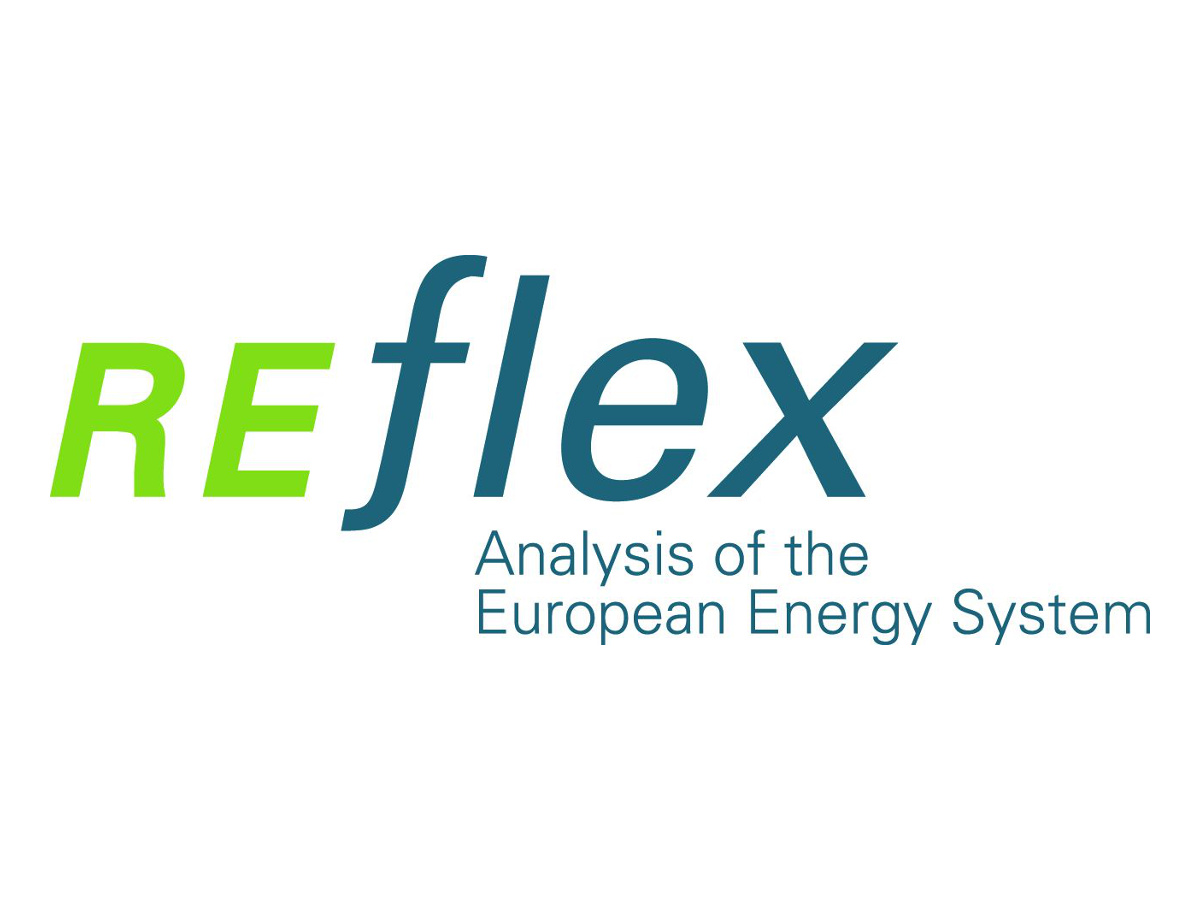REFLEX – Analysis of the European energy system under the aspects of flexibility and technological progress
- Project team:
Fuss, Maryegli (Project leader); Witold-Roger Poganietz; Lei Xu
- Funding:
EU Horizon 2020
- Start date:
2016
- End date:
2019
- Project partners:
Technische Universität Dresden (TUD), Germany; AGH University of Science and Technology, Poland; Energy Systems Analysis Associates – ESA2 GmbH, Germany; Fraunhofer-Gesellschaft, Germany; KTH Royal Institute of Technology, Sweden; TEP Energy GmbH, Switzerland; TRT Trasporti e Territorio Srl, Italy; Utrecht University, Netherlands
- Research group:
Project description
The future energy system is challenged by the intermittent nature of renewables and requires therefore several flexibility options. Still, the interaction between different options, the optimal portfolio and the impact on environment and society are unknown. It is thus the core objective of REFLEX to analyze and evaluate the development towards a low-carbon energy system with focus on flexibility options in the EU to support the implementation of the SET plan. The analyses are based on a modelling environment that considers the full extent to which current and future energy technologies and policies interfere and how they affect the environment and society while considering technological learning of low-carbon and flexibility technologies. For this purpose, REFLEX brings together the comprehensive expertise and competences of known European experts from six different countries. Each partner focusses on one of the research fields techno-economic learning, fundamental energy system modelling or environmental and social life cycle assessment. To link and apply these three research fields in a compatible way, an innovative and comprehensive energy models system (EMS) is developed, which couples the models and tools from all REFLEX partners. It is based on a common database and scenario framework. The results from the EMS will help to understand the complex links, interactions and interdependencies between different actors, available technologies and impact of the different interventions on all levels, from the individual to the whole energy system. In this way, the knowledge base for decision making concerning feasibility, effectiveness, costs, and impacts of different policy measures will be strengthened, which will assist policy makers and support the implementation of the SET plan. Stakeholders will be actively involved during the entire project, from the definition of scenarios to the dissemination and exploitation of results via workshops, publications and a project website.
The project consists of eight work packages. ITAS will mainly focus on the social, environment and economic assessment of key future technologies.
Publications
Unintended Environmental Impacts at Local and Global Scale : Trade-Offs of a Low-Carbon Electricity System
2021. The Future European Energy System. Ed.: D. Möst, 237–255, Springer Nature Switzerland. doi:10.1007/978-3-030-60914-6_13
Scenario Storyline in Context of Decarbonization Pathways for a Future European Energy System
2021. The Future European Energy System. Hrsg.: D. Möst, 9–25, Springer Nature Switzerland. doi:10.1007/978-3-030-60914-6_2
Summary, Conclusion and Recommendations
2021. The Future European Energy System. Hrsg.: D. Möst, 293–309, Springer Nature Switzerland. doi:10.1007/978-3-030-60914-6_16
The Future European Energy System : Renewable Energy, Flexibility Options and Technological Progress
2021. Springer Nature Switzerland. doi:10.1007/978-3-030-60914-6
Considering the Impacts of Metal Depletion on the European Electricity System
2021. Energies, 14 (6), Article no: 1560. doi:10.3390/en14061560
An Environmental Assessment Framework for Energy System Analysis (EAFESA): The method and its application to the European energy system transformation
2020. Journal of cleaner production, 243, 118614. doi:10.1016/j.jclepro.2019.118614
Optimal design of a hybrid energy plant by accounting for the cumulative energy demand
2019. Energy procedia, 158, 2834–2840. doi:10.1016/j.egypro.2019.02.046
Life cycle assessment of onshore wind power systems in China
2018. Resources, conservation and recycling, 132, 361–368. doi:10.1016/j.resconrec.2017.06.014
Optimal design of a hybrid energy plant by accounting for the cumulative energy demand
2018. 10th International Conference on Applied Energy (ICAE 2018), Hong Kong, Hong Kong, August 22–25, 2018
Contact
Karlsruhe Institute of Technology (KIT)
Institute for Technology Assessment and Systems Analysis (ITAS)
P.O. Box 3640
76021 Karlsruhe
Germany
Tel.: +49 721 608-26241
E-mail


